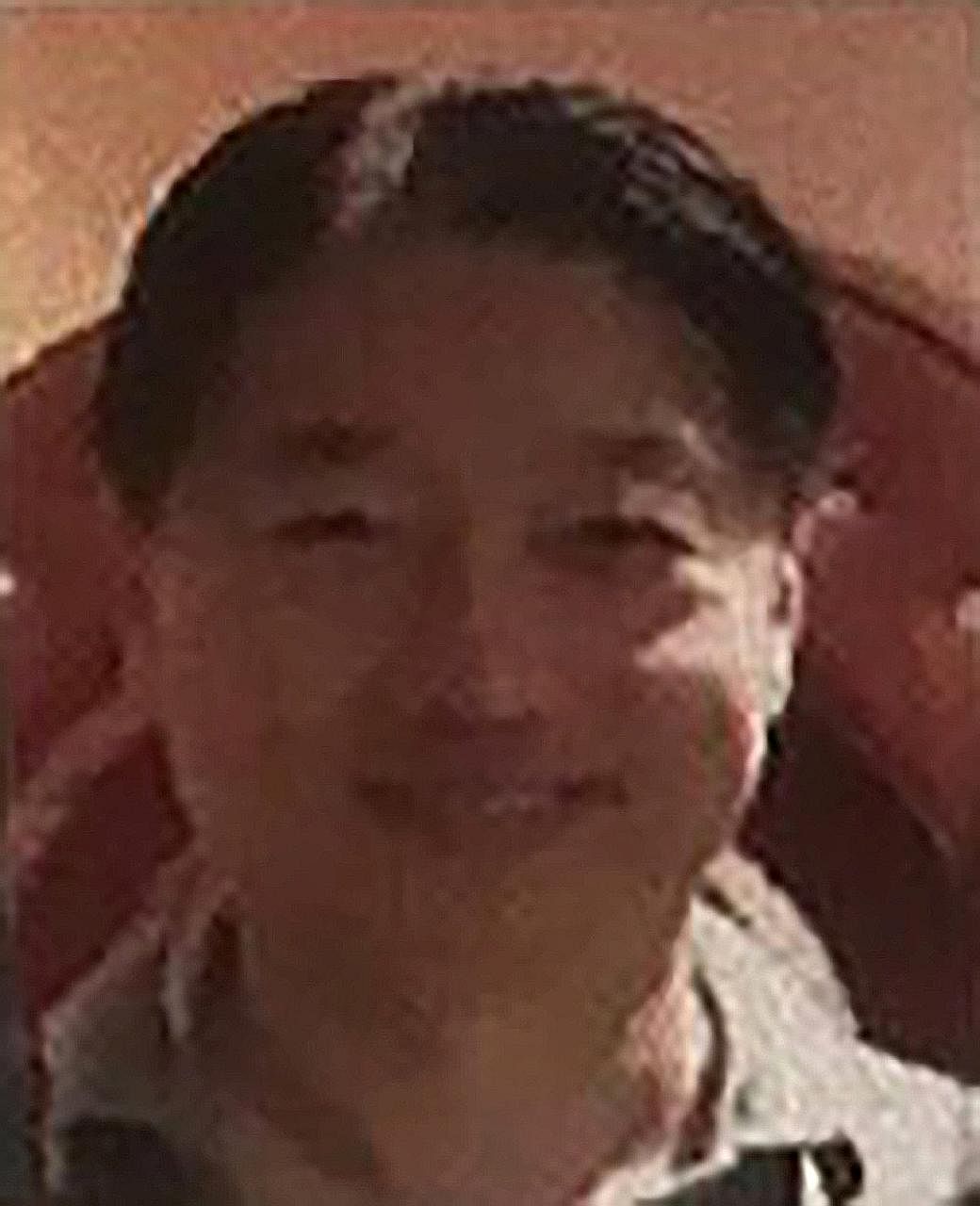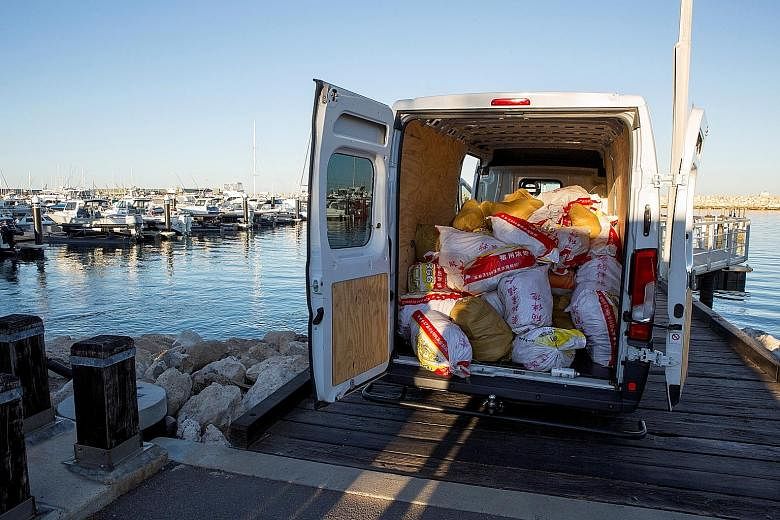BANGKOK • He is Asia's most-wanted man. He is protected by a guard of Thai kickboxers. He flies by private jet. And, the police say, he once lost US$66 million (S$90.5 million) in a single night at a Macau casino. Mr Tse Chi Lop, a Canadian national born in China, is suspected of leading a vast multinational drug-trafficking syndicate formed out of an alliance of five of Asia's triad groups, according to law enforcement officials.
Its members call it "The Company". The police, in a nod to one of Mr Tse's nicknames, have dubbed it Sam Gor, Cantonese for "brother number three". The syndicate, law enforcers believe, is funnelling tonnes of methamphetamine, heroin and ketamine to at least a dozen countries ranging from Japan to New Zealand. But meth - a highly addictive drug with devastating physical and mental effects on long-term users - is its main business.
In what it calls a conservative estimate, the United Nations Office on Drugs and Crime (UNODC) last year put the Sam Gor syndicate's meth revenue at US$8 billion a year, but says it could be as high as US$17.7 billion. The UN agency estimates that the cartel, which often conceals its drugs in packets of tea, has a 40 per cent to 70 per cent share of the wholesale regional meth market, which has expanded at least four times in the past five years.
This unprecedented boom in meth production has triggered an unprecedented response.
Mr Tse, 55, is the prime target of Operation Kungur, a sprawling, previously unreported counter-narcotics investigation. Led by the Australian Federal Police, Operation Kungur involves about 20 agencies from Asia, North America and Europe. It is by far the biggest international effort to combat Asian drug-trafficking syndicates, say law enforcement agents involved in the investigation. It encompasses the authorities from Myanmar, China, Thailand, Japan, the United States and Canada. Taiwan, while not formally part of the operation, is assisting in the investigation.
A document containing Australian Federal Police profiles of the operation's top 19 syndicate targets, reviewed by Reuters, identifies Mr Tse as the leader of the syndicate.
According to the document, the organisation has "been connected with or directly involved in at least 13 cases" of drug trafficking since January 2015. A Taiwanese law enforcement flow chart identifies Mr Tse as the multinational chief executive of the syndicate. A US Drug Enforcement Administration intelligence document shared with regional government agencies says Mr Tse is "believed to be" the leader of the Sam Gor syndicate.
The police have not publicly identified Mr Tse as the suspected boss of the trafficking group. Some investigators say the scope of the syndicate's operation puts Mr Tse as the suspected leader, on a par with Latin America's most legendary narco-traffickers.

"Tse Chi Lop is in the league of El Chapo or maybe Pablo Escobar," said Mr Jeremy Douglas, South-east Asia and Pacific representative for UNODC. "The word 'kingpin' often gets thrown around, but there is no doubt it applies here."
During the past year, Reuters criss-crossed the Asia-Pacific to uncover the story of Mr Tse and his Sam Gor network. This included interviews with more than two dozen law enforcement officials from eight countries, and reviews of intelligence reports from the police and anti-narcotics agencies, court filings and other documents.
Reuters spoke to militia leaders in Myanmar's Shan State, the heart of South-east Asia's Golden Triangle, where the syndicate is suspected of mass-producing drugs in so-called super labs. Reuters reporters also visited the Thai compound of one of the syndicate's alleged drug lords.
What emerges is a portrait of an organisation that is truly transnational. Four of the 19 Sam Gor syndicate leaders on the Australian Federal Police list are Canadian citizens, including Mr Tse, whom the police often refer to as "T1" - the top target. Others hail from Hong Kong, Macau, Taiwan, Malaysia, Myanmar, Vietnam and mainland China.
The syndicate is enormously wealthy, disciplined and sophisticated - in many ways more sophisticated than any Latin American cartel, say anti-narcotics officials.
Sam Gor supplies a bigger, more dispersed drug market and collaborates with a more diverse range of local crime groups than the Latin American cartels do, including Japan's Yakuza, Australia's biker gangs and ethnic Chinese gangs across South-east Asia. The crime network is also less prone to uncontrolled outbreaks of internecine violence than the Latin American cartels, police say.
Precious little has been revealed about Mr Tse's life and career. Unlike the Latin American drug lords, Mr Tse is relatively discreet - and still free.
Mr Tse was born in Guangdong province, in southern China, and grew up during China's Cultural Revolution. Amid the bloody purges, forced labour camps and mass starvation, a group of imprisoned members of Mao Zedong's Red Guard in the southern city of Guangzhou formed a triad-like criminal enterprise called the Big Circle Gang.
Mr Tse later became a member of the group, say the police, and, like many of his Big Circle Gang brethren, moved to Hong Kong, then further afield as they sought sanctuaries for their criminal activities. He arrived in Canada in 1988.
In the 1990s, Mr Tse rose to become a mid-ranking member of a smuggling ring that sourced heroin from the Golden Triangle, the lawless opium-producing region where the borders of Myanmar, Thailand, China and Laos meet.
In 1998, according to court records, Mr Tse was arraigned on drug-trafficking charges in the Eastern District Court of New York. He was found guilty of conspiracy to import heroin into America, the records show. He was sentenced to nine years in prison. The police say that after he was freed in 2006, he returned to Canada.
It is unclear when he returned to his old haunts in Asia. But corporate records show that Mr Tse and his wife registered a business, the China Peace Investment Group Company, in Hong Kong in 2011.
Mr Tse adopted a business model that proved irresistible to his customers, say law enforcers. If one of his drug deliveries was intercepted by the police, it was replaced at no extra cost, or deposits were returned to the buyers. His policy of guaranteeing his drug deliveries was good for business, but it also put him on the radar of the police.
As the investigation into him deepened, the police suspected that the Canadian was the major trafficker supplying Australia with meth and heroin, with a lucrative sideline in MDMA, commonly known as Ecstasy. But the true scale and breadth of the Sam Gor syndicate became apparent only in late 2016, the police say, when a young Taiwanese man entered Yangon airport with a bag of white powder strapped to each of his thighs.
The UNODC estimates that the Asia-Pacific retail market for meth is worth between US$30.3 billion and US$61.4 billion annually.
The wholesale price of a kilogram of crystal meth produced in north-eastern Myanmar is as little as US$1,800, according to a UNODC report citing the China National Narcotics Control Commission.
Average retail prices for crystal meth, according to the UN agency, are equivalent to US$70,500 per kg in Thailand, US$298,000 per kg in Australia and US$588,000 per kg in Japan. For the Japanese market, that is a markup of over 300 times.
The last time a top-level Asian narcotics kingpin was successfully prosecuted and imprisoned for more than a short period was in the mid-1970s. That was when Mr Ng Sik-ho, a wily Hong Kong drug trafficker also known as Limpy Ho, was sentenced to 30 years in prison for smuggling more than 20 tonnes of opium and morphine.
So far, Mr Tse has avoided Limpy Ho's fate. He is being tracked, and all the signs are that he knows it, say counter-narcotics agents. Some police officers believe that despite the heat, he is continuing his drug operations, unfazed.

